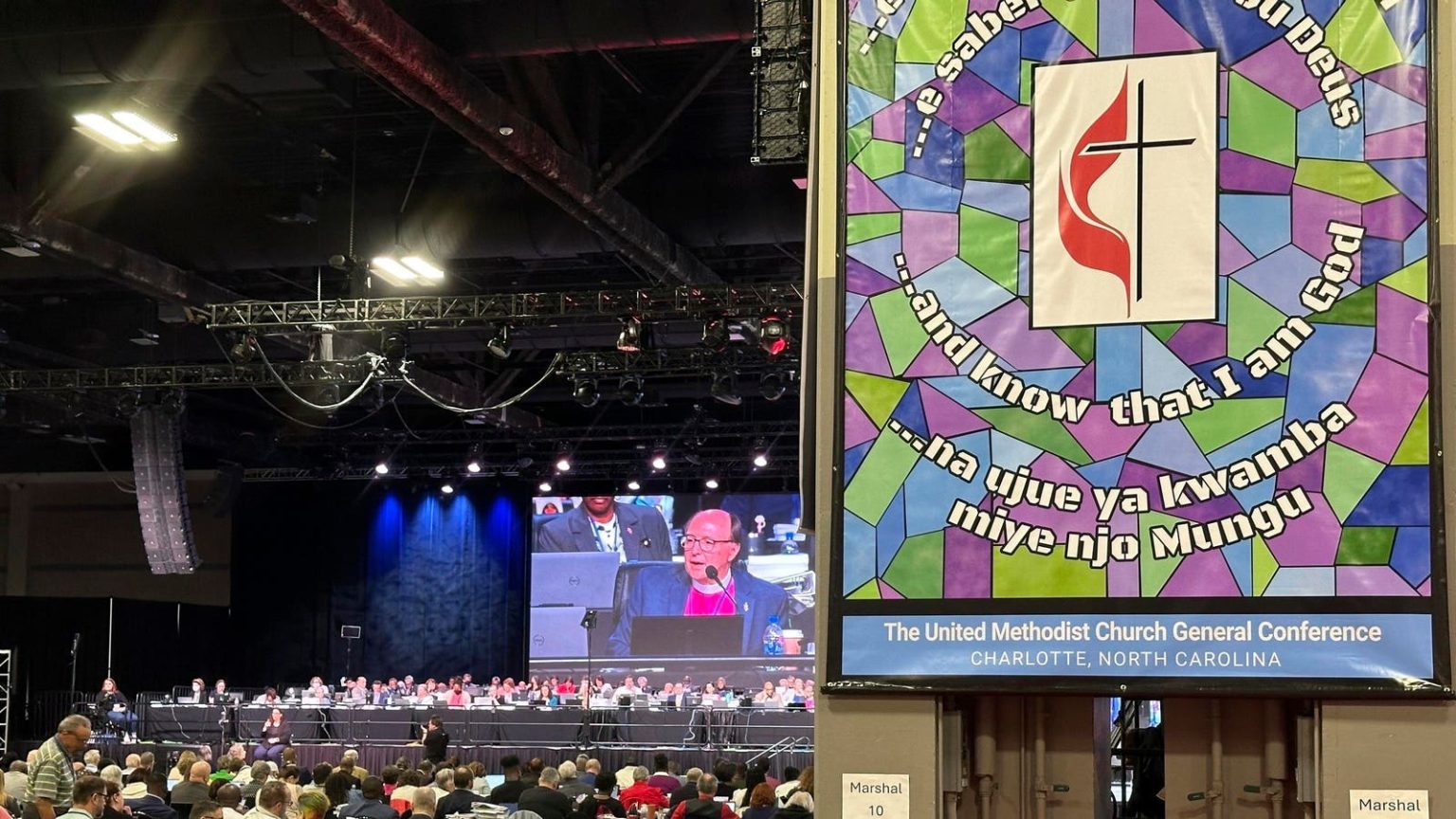The United Methodist Church made a historic decision on Wednesday by lifting its ban on LGBTQ+ members serving in the clergy. The vote, which was approved in a 692-51 decision at the church’s General Conference in Charlotte, North Carolina, marks a significant shift in the church’s policies regarding LGBTQ+ members. This decision comes as part of a series of changes, including allowing clergy and churches to hold same-sex weddings without facing penalties. The vote was met with celebration as church members sang, cheered, and embraced following the decision.
The changes in the United Methodist Church’s policies regarding LGBTQ+ members are the result of a years-long struggle within the church. The debate over the church’s stance on homosexuality has divided congregations for decades, leading to a historic schism that saw nearly a quarter of UMC’s congregations disaffiliating from the church between 2019 and 2023. The issue came to a head at the 2016 General Conference, where delegates were set to discuss LGBTQ+ acceptance but ultimately postponed the debate in favor of establishing a commission to review the church’s stance on LGBTQ+ issues. The special General Conference in 2019 allowed congregations to leave the church, leading to a shift towards more LGBTQ-inclusive policies at this year’s conference.
The United Methodist Church had previously banned “self-avowed practicing homosexuals” from serving in the clergy since 1984, while maintaining that all individuals are of sacred worth. The church’s stance on homosexuality has been a point of contention within the denomination, as other Christian denominations have also grappled with their beliefs on same-sex relationships. Pope Francis recently allowed Roman Catholic priests to perform same-sex blessings, indicating a shift towards more LGBTQ-inclusive practices within some Christian denominations.
As the United Methodist Church continues to evolve its stance on LGBTQ+ issues, more changes may be on the horizon. The church could potentially vote to redefine marriage as being between “two people of faith” in the near future. These ongoing discussions reflect a broader conversation within the church and other religious institutions about inclusivity and acceptance of LGBTQ+ individuals within their communities.
The decision to lift the ban on LGBTQ+ clergy in the United Methodist Church represents a significant moment in the denomination’s history. This move towards greater inclusivity and acceptance signals a shift within the church’s policies and reflects broader changes happening within the Christian community regarding LGBTQ+ issues. As the church continues to navigate these discussions, it will be interesting to see how further changes may impact its congregations and influence the broader conversation on LGBTQ+ acceptance within religious institutions. The vote at the General Conference marks a pivotal moment in the United Methodist Church’s ongoing journey towards greater inclusivity and acceptance for all members of its community.


